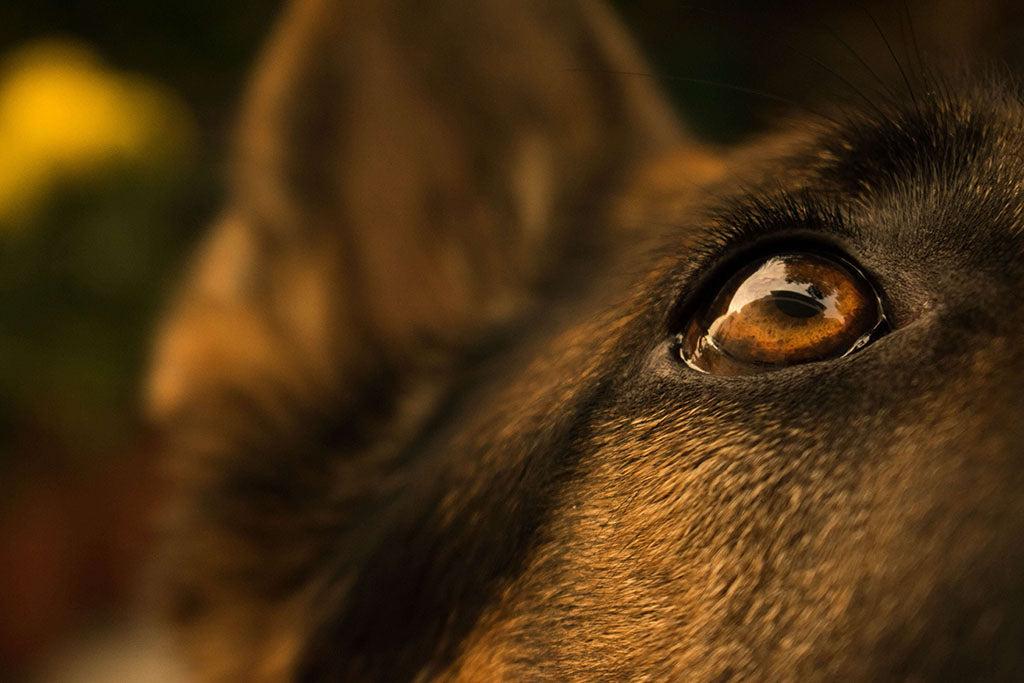Summary: In this blog, we’ll learn all about cataracts in dogs, including signs, treatment, and anticipated surgery costs… Did you know that humans and dogs share very similar ocular structures? This means that dogs can be prone to many of the same issues we are like styes, pink eye, and even cataracts. […]
Cataracts In Dogs

Summary: In this blog, we’ll learn all about cataracts in dogs, including signs, treatment, and anticipated surgery costs…
Did you know that humans and dogs share very similar ocular structures? This means that dogs can be prone to many of the same issues we are like styes, pink eye, and even cataracts.
Untreated cataracts can often result in total blindness, and because it’s considered quite common, it’s worth pet parents knowing about it.
Cataracts In Dogs
A normal, healthy eye allows light to pass through the lens and reach the retina located at the back. This, in turn, produces an image for the brain to process. However, when the lens of the eye becomes hazy or cloudy – or in other words, develops cataracts – this can inhibit light from entering the eye and thus diminish visual processing.
Cataracts is considered a progressive (but typically pain-free) condition and the cloudiness will most likely start off as barely noticeable. Untreated, cataracts will lead to the eye becoming completely opaque in color and this will most probably mean your dog is very visually impaired in the affected eye.
A healthy eye should be bright – the color of the eye and the whites of the eye should be clearly visible. If you spot any haziness in your dog’s eyes, you should schedule an appointment with your veterinarian. This is often the only symptom associated with cataracts in the early stages, as dogs typically cope with minor sight loss quite well.

Causes
Cataracts can develop because of a few reasons but most commonly, genetics can be blamed. Certain breeds tend to be more predisposed to cataracts than others too. These include Cocker Spaniels, Poodles, Golden Retrievers, and Miniature Schnauzers.
Natural aging is also considered a cause of cataracts, as is canine diabetes, glaucoma, and a condition called uveitis where the middle layer of the eye becomes inflamed.
Treatment
Once a positive cataract diagnosis is obtained, your vet may offer you dog cataract surgery. This is where they’ll replace the affected eye lens with a plastic lens and it’s considered the most effective treatment. However, in some cases, the surgery may not be viable which your vet will advise you on, if so.
According to Michigan State University’s Veterinary Medical Center, the long-term success rate of uncomplicated cataract surgery in dogs is estimated to be about 85% to 90% which is excellent.
However, if cataracts has been caused by another condition – like glaucoma – then these issues will have to be treated too.
How much is cataract surgery for dogs?
Cataract surgery for dogs can cost anywhere between $2700 to $4000 which will include before and aftercare. This is why taking pet insurance out from the moment you own your dog is advised. If you think you need support to pay for your dog’s cataract surgery, talk to your vet as their office may offer payment plans.

There’s no way of preventing cataracts. So, if your dog does develop the condition and they’re in the advanced stages of it they may become a little disorientated and begin to bump into things.
Remember, unless they also have glaucoma, it’s unlikely that your dog is in any pain and their amazing sense of smell can compensate a surprising amount for any sight loss caused by cataracts. You can support them though, by keeping furniture and food bowls in the same positions in your home and keep them on a leash when on walks.
If you breed dogs, screening for eye conditions in the prospective parents is highly encouraged. If you’re buying a puppy, you should ask the breeder about screenings they’ve undertaken too before you purchase.
Sources
Author Diamond, Aliyah DVM “Dog Cataract Surgery Cost & How To Save” Pawlicy https://www.pawlicy.com/blog/dog-cataract-surgery-cost/
“Cataract Surgery” Michigan State University Veterinary Medical Center https://cvm.msu.edu/hospital/services/ophthalmology/cataract-surgery
Author Dr Miller, Andrew MRCVS “Cataracts In Dogs” Pure Pet Food https://www.purepetfood.com/help/cataracts-in-dogs
 S
S



